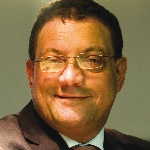News >> In The Know
 Mark Harris, Kagiso Media
Mark Harris, Kagiso Media
Kagiso Media, which was bought out by Kagiso Tiso Holdings last September in a R1.87 billion deal, is
positioning itself so it can take advantage of changes in the way technology is used and consumed.
Kagiso Media CEO Mark Harris, who has been heading the company for about a year after Murphy Morobe’s departure, notes the separation between the company’s divisions is blurring as convergence picks up.
The group has several radio assets, including East Coast Radio and Jacaranda FM, as well as new media firm Gloo, property and geospatial data company Knowledge Factory, and a majority stake in Urban Brew.
It is critical to understand that audiences want to stay in touch in multiple ways, says Harris. He notes it is about “how you get that audience to want to interact with you,” which requires a mix of aspects, including online portals, events and social media. Kagiso is now moving into the realm of linking its broadcasting assets and digital entities to obtain a deeper understanding of its audiences, says Harris. The company,
which also owns Glow TV, is moving more into television as well, he adds.
Harris says Urban Brew does a lot of production and play-out services, and Kagiso will continue to create new channels that will be platform-agnostic. Glow, a free-to-air channel after the initial payment, is currently playing out on etv’s platform, and Harris says the company is in talks with Sentech to use its Freevision service.
Kagiso has also just acquired global distribution capability and is targeting getting content into the African continent, notes Harris. He says the company is already there, but needs to expand because it anticipates a great need for more digital channels, especially as Africa moves off analogue television, onto digital.
Harris adds the digital world is changing in terms of how people get to content, with users searching for what they want instead of going to the Web sites directly. Social media and e-commerce are becoming as big a force as advertising as the way digital space is commercialised, he says.
|
Post a comment
|
Login.
All rights reserved © Copyright by ITWeb, 2011


